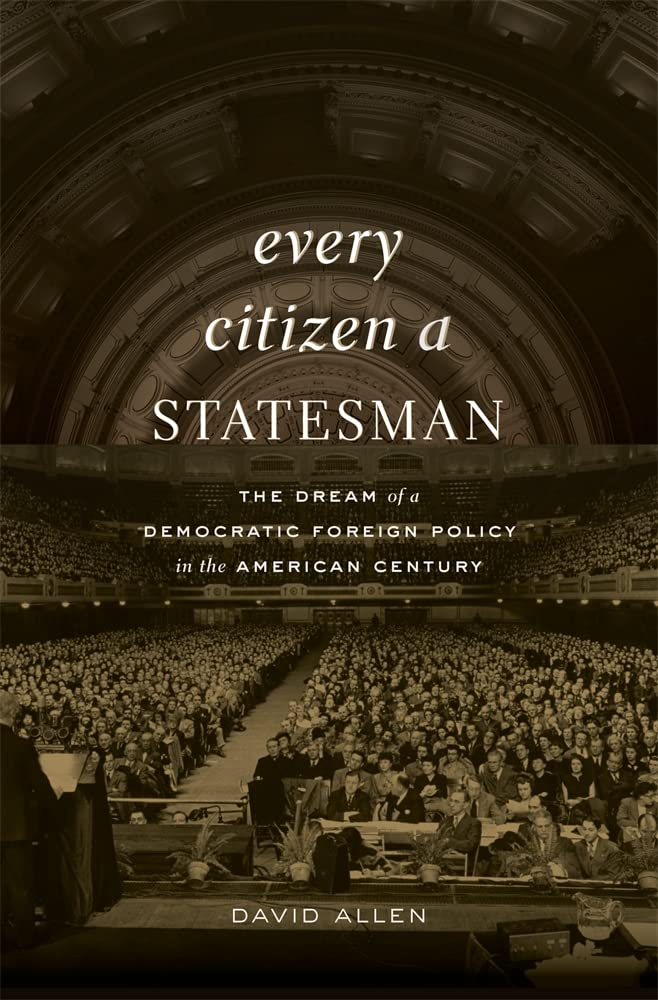According to those who run the U.S. national security state, foreign policy must be an elite, expert-driven affair. But this wasn’t always the case. In the early twentieth century, some Americans sought to establish a system that would give the American public a say in foreign policy decision-making. In his revelatory Every Citizen a Statesman: The Dream of a Democratic Foreign Policy in the American Century, historian David Allen tells the story of the Foreign Policy Association (FPA), the most important group to attempt to develop a public ready and able to make foreign policy.
The FPA’s story allows readers to return to a moment very unlike our own, when some elites sought to reconcile democracy with expertise. It brings us back to an era when certain well-heeled Americans, less alienated from their fellow citizens, believed that public discussion could shape how decision-makers made policy. And it enables us to trace past efforts to educate an inchoate public and make it a crucial actor in U.S. policymaking.
But most important, if most depressing, the FPA’s total failure to accomplish any of its goals highlights the difficulty, perhaps impossibility, of creating a democratic foreign policy in a country whose rulers are fundamentally skeptical of the public they deign to rule.
The contemporary story of democratic foreign policy in the United States begins in World War I, when the nation, bucking centuries of tradition, resolutely entered a European conflict. With this decision, President Woodrow Wilson made clear that the United States would no longer stand apart from the Old World but would instead take its place among the nations as a so-called great power. This new global role raised a novel question Americans had mostly ignored since their nation’s founding: Who decides how the United States acts in the world?
For many Progressive Americans who took an interest in foreign affairs—journalists like Herbert Croly and Frank U. Kellogg, academics like Charles Beard, Stephen Duggan, and Alvin Johnson, philanthropists like Florence Lamont and Dorothy Payne Whitney—the answer was clear: the “public” should determine U.S. foreign policy. But when these Progressives employed the term “public,” they had a specific definition in mind; they were never referring, Allen notes, to “the unfiltered will of the people,” as they believed the actually existing demos was not yet mature or educated enough to make wise foreign policy choices. Instead, democratic-minded Progressives insisted, only a “properly instructed” public could ever gain the capacity to make U.S. foreign policy. For these Progressive elites, a period of tutelage was necessary before the reins of policymaking could be handed over to the hoi polloi.
